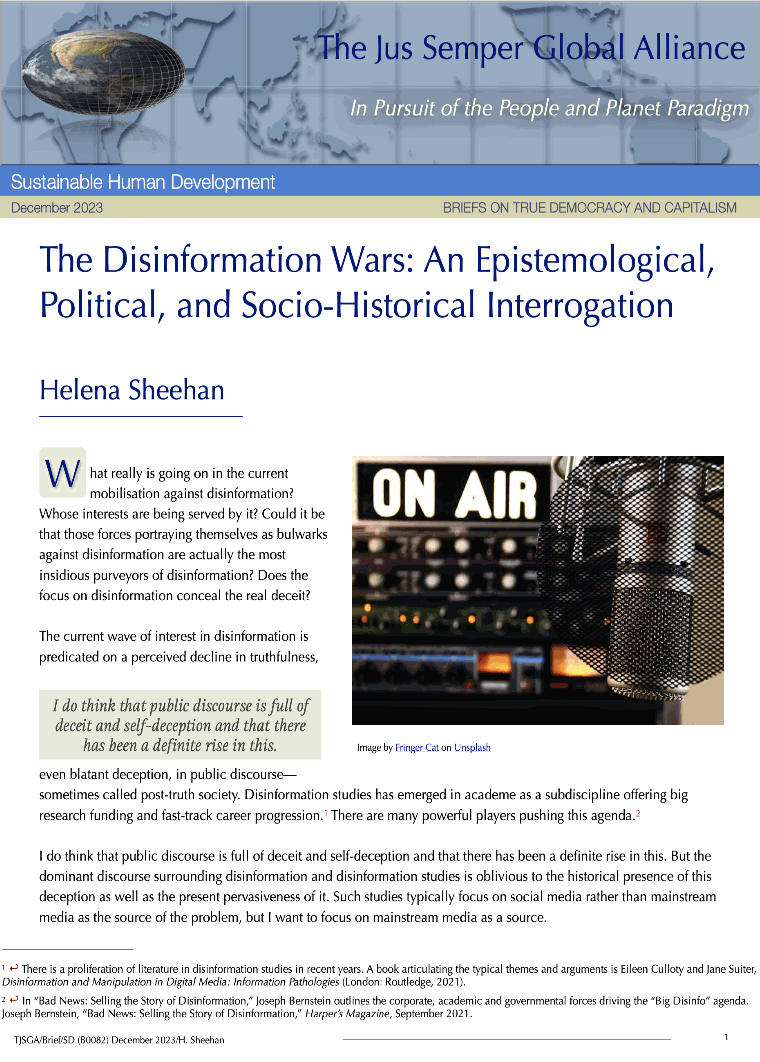The Disinformation Wars: An Epistemological, Political, and Socio-Historical Interrogation
Helena Sheehan
What really is going on in the current mobilisation against disinformation? Whose interests are being served by it? Could it be that those forces portraying themselves as bulwarks against disinformation are actually the most insidious purveyors of disinformation? Does the focus on disinformation conceal the real deceit? The current wave of interest in disinformation is predicated on a perceived decline in truthfulness, even blatant deception, in public discourse—sometimes called post-truth society. Disinformation studies has emerged in academe as a subdiscipline offering big research funding and fast-track career progression.1 There are many powerful players pushing this agenda.2 I do think that public discourse is full of deceit and self-deception and that there has been a definite rise in this. But the dominant discourse surrounding disinformation and disinformation studies is oblivious to the historical presence of this deception as well as the present pervasiveness of it. Such studies typically focus on social media rather than mainstream media as the source of the problem, but I want to focus on mainstream media as a source. For a full read of this brief, click here or on the picture to download the pdf file. | 





